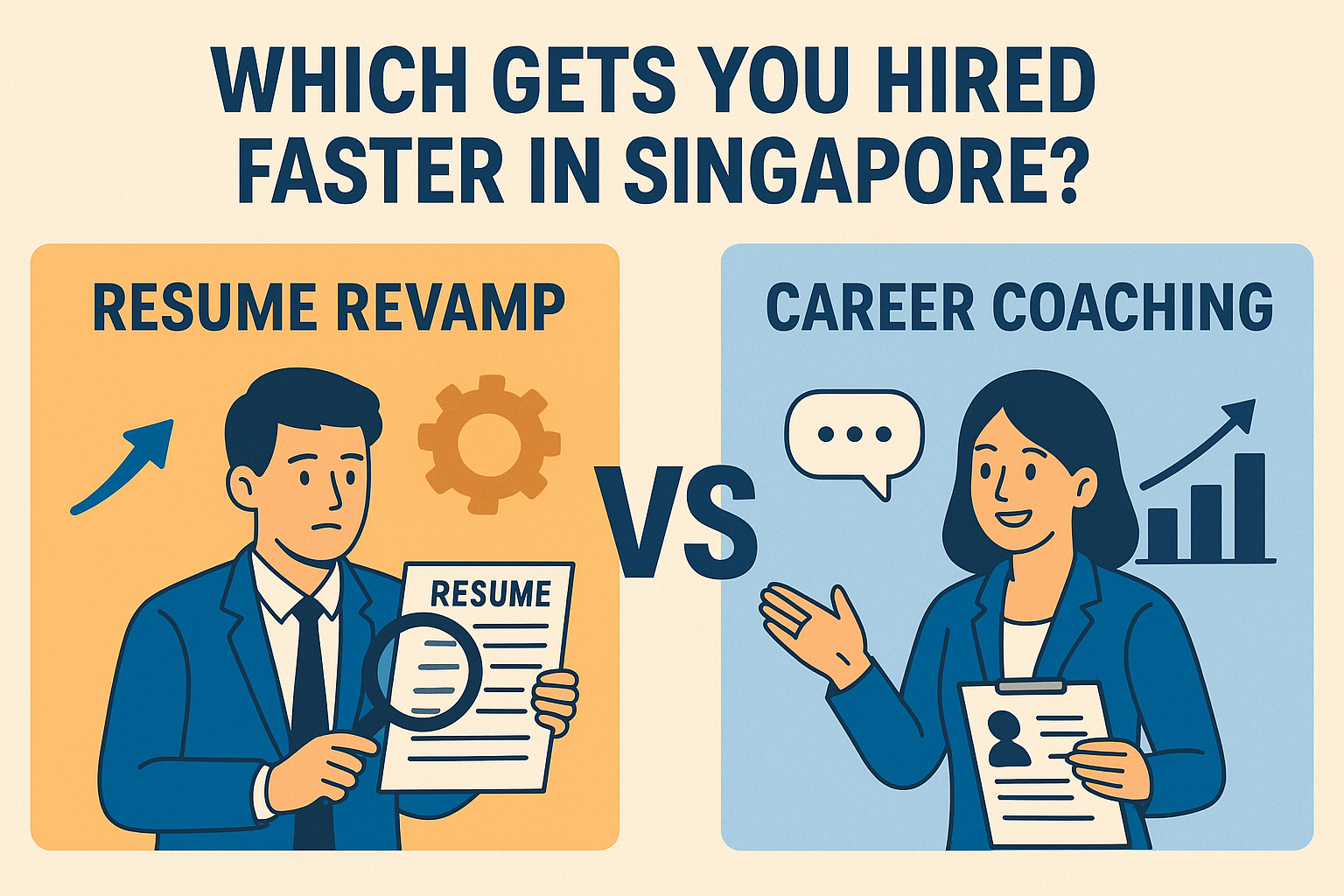Change is rarely comfortable. Even when you choose it, change has a way of stirring uncertainty, disrupting routines, and testing your confidence. Nowhere is this more obvious than in career transitions. Whether you’re switching industries, stepping into leadership, moving abroad for work, or returning after a career break, the process often feels like standing on shifting ground.
Some people thrive in these moments, while others freeze, second-guess themselves, or struggle with stress. The difference isn’t just skills or experience—it’s something deeper: psychological agility.
Psychological agility is the ability to stay flexible, resilient, and grounded in the face of change. Instead of being derailed by setbacks or clinging to outdated ways of thinking, you learn to adapt and grow. The good news? This is not a fixed trait—it’s a skill you can develop, and coaching can play a powerful role in the process.
Why Career Transitions Feel Overwhelming

Career changes are more than just switching tasks or updating a job title—they strike at the core of your identity. For years, you may have defined yourself by your role: “I’m a manager,” “I’m in finance,” “I’m an entrepreneur.” Your job isn’t just what you do; it’s a lens through which you view yourself and how others perceive you. When that shifts, it’s natural to feel unmoored, as though the ground beneath you has shifted overnight.
On top of this identity shift comes the uncertainty of the future. Questions swirl: Will I be successful in this new role? Can I adapt quickly enough? What if I make the wrong decision? These thoughts can create anxiety, making even small decisions feel monumental.
Financial considerations add another layer of pressure. If your transition involves a pay cut, a career break, or moving to an unfamiliar market, the stakes feel even higher. Suddenly, it’s not just about professional growth—it’s about stability, security, and responsibility for yourself and perhaps others.
Career transitions often trigger a mix of emotions, including:
- Anxiety and self-doubt – Wondering, “Am I really good enough to do this?” or “Do I have what it takes?” can paralyze even the most accomplished professionals.
- Decision paralysis – The fear of making the “wrong” choice can prevent any action, leaving you stuck in indecision and overanalyzing every possibility.
- Identity confusion – “If I’m no longer this, then who am I?” can leave you questioning your sense of purpose and self-worth.
- Resistance to letting go – Leaving familiar routines, trusted networks, or established ways of working can feel like a loss, even if the new path is exciting.
These reactions aren’t signs of weakness—they’re natural human responses to uncertainty and change. But without the right tools and mindset, these emotional hurdles can make transitions feel overwhelming, slow progress, and even lead to avoidance. Recognizing these challenges as normal is the first step toward approaching career change with curiosity, resilience, and psychological agility.
What Is Psychological Agility?
Psychological agility is the inner flexibility that allows you to shift perspectives, manage emotions, and take actions aligned with your values, even when circumstances are uncertain or challenging. In simple terms, it’s the ability to move with life rather than resist it. Think of it as the opposite of rigidity—where rigid thinking keeps you stuck, fearful, or overly controlling.
Rigid thinking often sounds like:
- “I’ve always done it this way, so I can’t change.”
- “If this doesn’t work perfectly, I’ve failed.”
- “I must have complete certainty before I act.”
This type of thinking can feel safe, but in reality, it limits growth. It creates stress, indecision, and the sense that every step outside your comfort zone is risky or wrong.
Agile thinking, in contrast, is flexible and adaptive. It says:
- “I can experiment and learn as I go.”
- “Setbacks are part of growth, not proof I can’t succeed.”
- “I may not have all the answers, but I can take the next step.”
When you cultivate psychological agility, you build the ability to adapt without losing your sense of self or your values. Change no longer feels like a threat; instead, it becomes an opportunity to explore, learn, and grow. You start responding to challenges rather than reacting impulsively.
Over time, this mindset allows you to ride the waves of career transitions, organizational changes, or even personal shifts with confidence and resilience. You learn to embrace uncertainty as a space for possibility, making each transition not just manageable, but transformative.
How Coaching Builds Psychological Agility During Career Transitions
Career transitions can feel overwhelming, leaving even the most capable professionals second-guessing themselves. That’s where career coaching becomes a game-changer. By providing structure, guidance, and emotional support, coaching helps you develop psychological agility—the flexibility to adapt, stay resilient, and take purposeful action even in uncertain times.
A skilled coach does more than offer advice. They help you identify hidden patterns, challenge limiting beliefs, and create practical strategies specifically tailored to your career change journey. This combination of guidance and accountability is what makes coaching so effective in helping people thrive during periods of transition.
1. Clarifying Your Values and Career Direction
One of the biggest challenges during a career change is losing sight of what truly matters to you. Coaching helps you identify your core values—whether that’s growth, creativity, stability, impact, or autonomy—so that your next step aligns with your personal and professional goals. This clarity turns indecision into action, ensuring that every career move feels intentional rather than reactive.
2. Reframing Fear as Opportunity
Fear often accompanies career transitions, but it doesn’t have to be paralyzing. A coach helps you reframe fear as curiosity and opportunity. By shifting your mindset from “I might fail” to “What can I learn from this?” you reduce anxiety and open yourself up to new possibilities in your career. This subtle yet powerful mindset shift is essential for developing adaptability and resilience.
3. Strengthening Emotional Regulation

Transitions bring stress, and stress narrows your perspective. Coaching equips you with tools such as reflection exercises, mindfulness techniques, and cognitive reframing to manage emotions effectively. By regulating stress and maintaining focus, you can make better decisions, act confidently, and stay grounded even in the face of uncertainty.
4. Building Confidence Through Small Wins
Psychological agility isn’t built overnight. A coach helps break overwhelming goals into small, achievable steps, creating consistent wins that reinforce your belief in your ability to adapt. Over time, these small victories build long-lasting confidence, empowering you to approach even bigger challenges with calm and clarity.
5. Accountability for Consistent Progress
When self-doubt creeps in, it’s easy to retreat or postpone action. Coaching provides accountability—a partner who checks in, celebrates your progress, and keeps you moving forward. This support ensures that you stay committed to your career transition goals, even when uncertainty or fear arises.
Practical Ways to Build Psychological Agility in Career Transitions
Developing psychological agility doesn’t mean overhauling your entire life or completely reinventing yourself overnight. In fact, it’s often the small, intentional shifts in thinking, behavior, and habits that make the biggest difference during a career transition. These practical strategies can help you navigate change with confidence, resilience, and clarity.
1. Practice Flexible Thinking
Rigid thinking can make career transitions feel daunting. Instead of seeing challenges as obstacles, try asking yourself: “What’s another way to see this?” or “What opportunities might this situation offer?” By deliberately considering different perspectives, you train your mind to adapt and respond creatively rather than react impulsively. Over time, flexible thinking becomes a habit, making even unexpected changes feel manageable.
2. Name Your Emotions

Change can trigger fear, frustration, or self-doubt. Rather than suppressing these emotions, give them a name. Say to yourself: “I feel anxious about this new role” or “I’m frustrated by uncertainty.” Awareness alone can reduce their intensity, allowing you to respond thoughtfully rather than being driven by stress. Naming your emotions also strengthens emotional intelligence, a key skill in career success.
3. Use Experiments, Not Ultimatums
Perfectionism can be paralyzing during a career transition. Instead of demanding that every step be flawless, treat each action as an experiment. For example, try a new networking approach or skill-building exercise for 30 days, observe the results, and adjust. This mindset shifts failure from something to fear into something to learn from, fostering adaptability and reducing the pressure of change.
4. Create Supportive Routines

Anchoring yourself with consistent habits provides stability amidst uncertainty. Daily routines like journaling, light exercise, or setting aside time for networking can give you a sense of control and momentum during a career shift. These practices not only support psychological agility but also reinforce self-discipline and focus, helping you take deliberate steps toward your career goals.
5. Lean on Growth-Oriented Language
The words you use shape your mindset. Replace limiting statements like “I can’t handle this” with growth-oriented alternatives: “I’m learning how to handle this” or “This is an opportunity to grow.” This simple shift in language rewires your thinking patterns, fostering optimism, resilience, and a proactive approach to career transitions.
By practicing these strategies consistently, you gradually build psychological agility, making it easier to navigate career transitions, embrace opportunities, and adapt to unexpected challenges. These small, intentional changes help you move from fear and uncertainty to confidence and forward momentum, turning even the most daunting career shifts into opportunities for personal and professional growth.
A Real-Life Example
Imagine someone leaving a corporate job after 15 years to start their own business. At first, the excitement is high—but soon doubts surface: “What if I fail? I don’t know how to market myself. Maybe I should have stayed where I was safe.”
With coaching, this person begins to shift perspective:
- Recognizing that fear of failure is normal, not proof they’re unfit.
- Breaking down overwhelming tasks into manageable steps.
- Reframing setbacks (like a failed pitch) as learning opportunities.
- Staying aligned with deeper values—like freedom, creativity, and impact.
Instead of crumbling under uncertainty, they build agility. Over time, they grow more confident, resourceful, and resilient—not because the transition was easy, but because they learned to adapt.
Why Psychological Agility Matters Beyond Career Transitions
Developing psychological agility isn’t just a tool for navigating a single career change—it’s a lifelong skill that equips you to handle all of life’s twists, turns, and uncertainties. In today’s fast-paced world, careers are rarely linear. People switch roles, industries, and even career paths multiple times, often in ways they never anticipated. Shifts, pivots, and reinventions have become the new normal, making adaptability more important than ever.
When you cultivate psychological agility, you train your mind to respond effectively to change rather than react out of fear or habit. This skill influences every aspect of life, not just work:
- You bounce back faster from setbacks: Instead of dwelling on failure, you can analyze what went wrong, learn from it, and move forward with renewed focus. Resilience becomes second nature, and challenges stop feeling like roadblocks.
- You’re more open to opportunities that others might resist: Agile thinkers see change as potential, not threat. While others shy away from uncertainty, you can spot opportunities, take calculated risks, and position yourself for growth.
- You lead with confidence, even in uncertain environments: Whether guiding a team through a restructuring or adapting to new responsibilities, psychological agility allows you to remain calm, make thoughtful decisions, and inspire trust in others.
In essence, psychological agility is more than a skill for surviving career transitions—it’s a foundation for long-term personal and professional growth. It enables you to embrace change, make intentional decisions, and continuously evolve in alignment with your goals and values.
By building this inner flexibility, you’re not just preparing for your next career move—you’re preparing for a lifetime of challenges and opportunities, equipped with the mindset, resilience, and confidence to thrive no matter what comes your way.
Final Thoughts: Growing Through Change
Career transitions test you in profound ways. But they’re also opportunities to discover resilience, creativity, and strengths you didn’t know you had. Psychological agility is what allows you to not only survive these transitions but thrive in them.
You don’t need to navigate this process alone. Coaching can help you develop the clarity, confidence, and inner flexibility to turn career change into a stepping stone toward your best future.
If you’re standing at a career crossroads, ask yourself: What would be possible if I approached this transition not with fear, but with agility?
✅ Book an Appointment today and start building the psychological agility you need to grow through change with confidence.









0 Comments